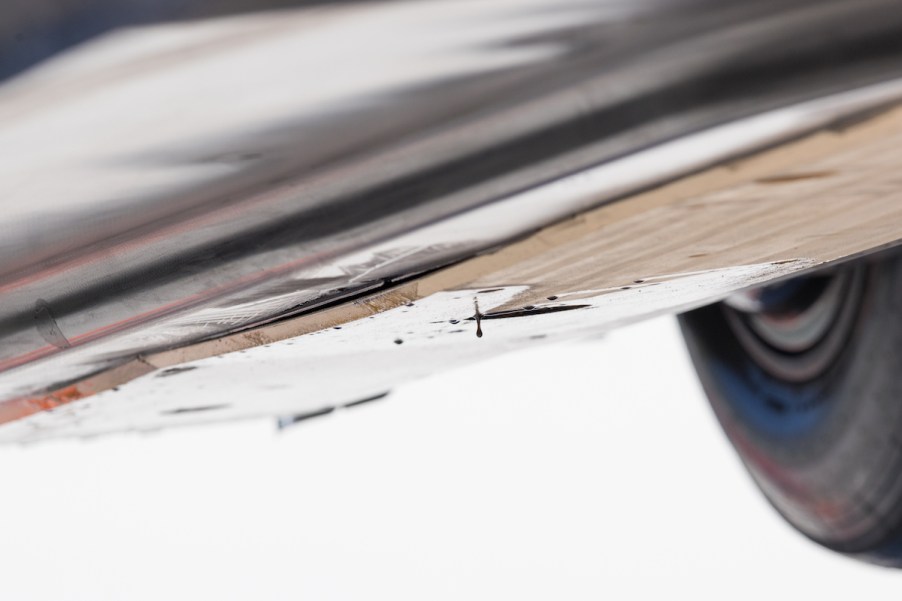
6 Reasons You Could Be Leaking Oil
It’s not uncommon to find fluid leaking from your vehicle, and you should never ignore it. For some problems, it could be something a little maintenance can fix, while other types of leaks may be warning signs of high repair bills to come. Leaking oil is one of the most common issues you may face, with six common causes.
1. Degraded engine gasket

An engine gasket is simply a seal between two surfaces. This is important because its parts can expand as the engine heats up. When the engine cools down, they begin to contract back to its original size and shape.
The cylinder head gasket is designed to prevent engine oil from leaking into the cylinder or out of the car completely. According to Access Auto Insurance, if it begins to degrade, that’s when you notice those disgusting yellow or dark brown puddles.
2. Hole in the oil pan
Your oil may leak due to a hole in the oil pan. There are several reasons this could happen.
One is related to the gasket becoming worn out. Other reasons include the oil drain plug and the threads beginning to break down or have become compromised in some way.
Finally, you may have hit something on the way home, and it knocked a hole in the oil pan. Regardless of the reason, it’s important to get that hole fixed ASAP.
3. Corroded or broken oil seal
If the seal holding your oil in becomes corroded or broken, then it can slowly begin to leak oil. The signs of this may not be as evident at first, and it may have been going on for a while before you begin to see puddles appear under your car.
4. Worn out the oil filter
Did you know that oil needs to be filtered out before it can be pumped through the rest of your vehicle? This makes the oil filter an integral part of your car, even though it doesn’t get nearly the same attention as the engine and transmission.
With that being said, the oil filter has a relatively short shelf life compared with other parts and will need to be replaced when it becomes worn out to prevent oil leaks.
5. Missing or broken filter cap
The oil filter cap is primarily designed to prevent dirt and dust particles from getting into your engine and causing havoc. It also serves as a pressure relief valve for your engine. If it’s missing or broken, then your engine is at risk.
You also run the risk of oil leaking into the engine, which is something you want to avoid at all costs. Thankfully, replacement caps are relatively cheap and easy to install.
6. Poor valve gasket connection
Most valve gaskets are made out of cheap materials like plastic and rubber. Given the engine’s hard work, it’s easy to see how this can wreak havoc on the valve gasket. This becomes all the worse if the valve gasket connection is not secured, so if you have leaking oil, this is one of the things you should check out first.
Routine maintenance is key
Fixing an oil leak may or may not be a simple task. It’s easier to avoid all these problems by having your oil changed routinely. It’s not a guarantee that your oil will never leak, but it will help prevent many issues your vehicle will face as it ages.
Furthermore, it’s also essential to use high-quality oil. You may pay more upfront, but it’s much cheaper to spend a little extra for a superior product than to produce your mechanic.


